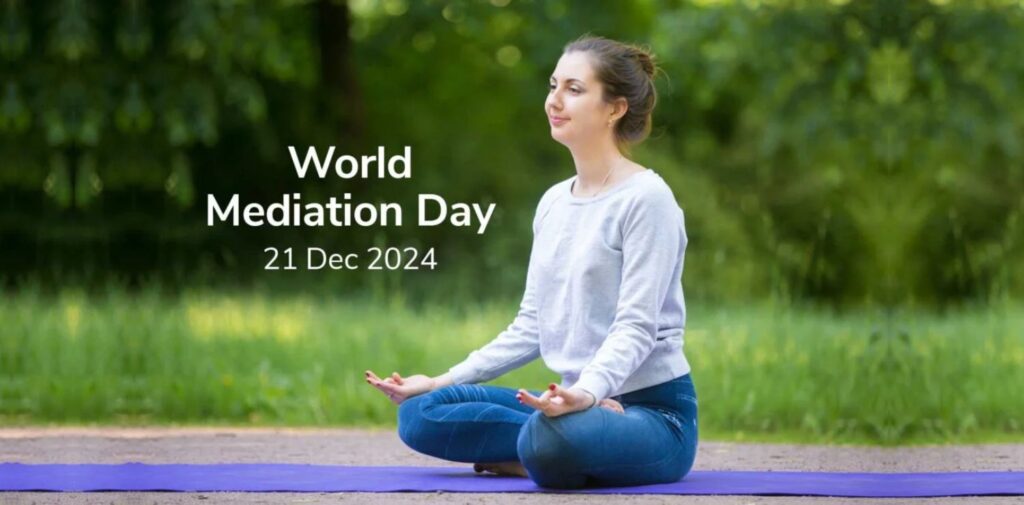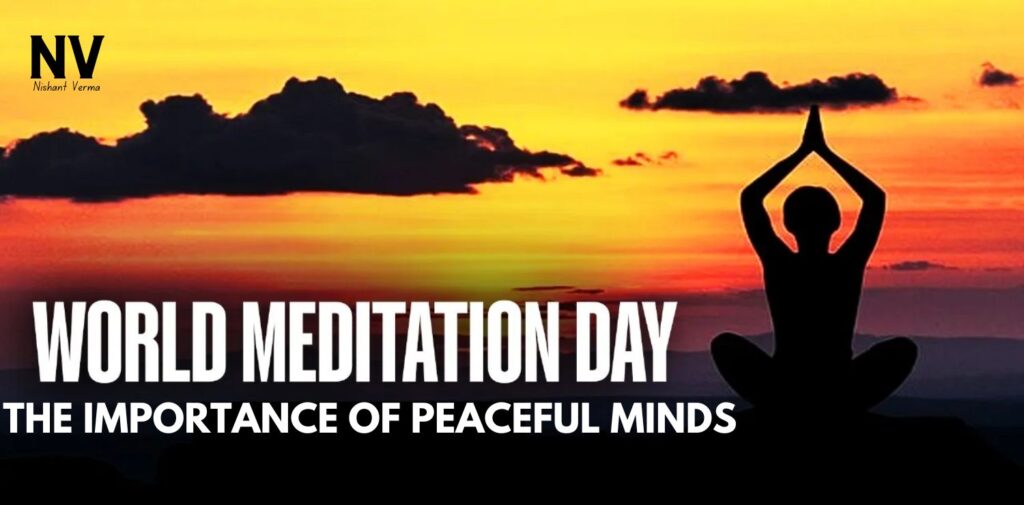In today’s fast-paced world, where everyone is running behind their goals, facing stress, and battling constant distractions, taking a moment to relax and calm the mind has become more important than ever. Meditation, an ancient practice with roots in India, is a powerful tool for mental well-being, and it is celebrated on 21st December as Meditation Day. This day is not just about sitting quietly; it’s about understanding the importance of inner peace, focus, and clarity.
This article will explore the significance of Meditation Day, the benefits of meditation, and how people in India can incorporate this practice into their daily lives to improve their mental, emotional, and physical health.
What is Meditation Day?
Meditation Day, celebrated every year on 21st December, is dedicated to the practice of meditation and mindfulness. It’s a day to reflect on the importance of mental peace and to raise awareness about the benefits of a calm and focused mind. While meditation is a practice followed worldwide, this day serves as a reminder to pause, breathe, and focus on the present moment.
Meditation has been a part of Indian culture for thousands of years, with its roots tracing back to ancient practices in Hinduism, Buddhism, and Jainism. In India, meditation is not just a physical exercise but a spiritual practice, with the ultimate goal being self-realization and connection to the divine.

Why is Meditation Important?
The importance of meditation can be understood from both a spiritual and scientific perspective. Here are a few reasons why meditation holds such significance:
- Mental Peace and Stress Reduction: In today’s world, mental health issues like anxiety, depression, and stress have become common. Meditation helps calm the mind and reduces the harmful effects of stress. Through breathing exercises and focused attention, it promotes relaxation, which helps in lowering cortisol (stress hormone) levels. This results in a calmer, more peaceful state of mind.
- Enhances Concentration and Focus: Meditation improves concentration by training the mind to focus on a single point or task. This enhanced focus not only benefits individuals in their personal and professional lives but also allows them to be more productive and efficient.
- Boosts Emotional Well-being: Meditation helps individuals develop emotional resilience. By being more mindful and aware of their emotions, people can respond better to challenges and setbacks. It creates a sense of emotional balance, making it easier to handle difficult situations with a positive attitude.
- Improves Sleep Quality: Many people struggle with insomnia or poor-quality sleep. Meditation, particularly practices like mindfulness and deep breathing, helps relax the body and mind before sleep, resulting in better sleep quality and improved overall health.
- Enhances Self-awareness: Meditation encourages individuals to look within and become more aware of their thoughts, actions, and behaviors. This self-awareness leads to personal growth and helps people understand their true selves, their desires, and their fears.

How Can Meditation Be Practiced?
Meditation is a versatile practice, and there are different types of meditation that can be practiced depending on individual preferences. Here are some popular meditation techniques:
- Mindfulness Meditation: Mindfulness meditation involves paying attention to your thoughts and feelings without judgment. It encourages being present in the moment. People practice mindfulness meditation by focusing on their breath, sounds, or sensations in the body.
- Guided Meditation: In guided meditation, a teacher or audio guide leads the individual through the process. This can include visualizing peaceful scenes, practicing relaxation, or using affirmations. Guided meditations are great for beginners who may find it challenging to meditate on their own.
- Mantra Meditation: In mantra meditation, individuals repeat a specific word or phrase (mantra) silently or out loud to help focus the mind. Popular mantras include words like “Om” or phrases like “So Hum” (I am that). Repeating a mantra helps to clear the mind of distractions.
- Loving-kindness Meditation (Metta): This practice involves sending out feelings of love and kindness to oneself and others. It is an excellent way to cultivate compassion, empathy, and positive emotions.
- Transcendental Meditation: This is a form of silent meditation in which the individual repeats a specific sound or word (mantra) to transcend ordinary thinking and experience pure awareness. It is typically taught by certified instructors and has gained popularity worldwide.
How Meditation Day Can Be Celebrated in India
Meditation Day is an opportunity to spread awareness about the mental, physical, and emotional benefits of meditation. Here are some simple ways people in India can observe this day:
- Practice Meditation Daily: On Meditation Day, one can set aside some time to practice meditation. Even if it’s just for 10-15 minutes, sitting in a quiet space, focusing on your breath, and calming your mind can have a positive effect. It’s a chance to start or strengthen your meditation habit.
- Join a Meditation Session: Many meditation centers, yoga studios, and spiritual organizations across India offer free online or in-person sessions to celebrate Meditation Day. Attending such sessions can help deepen your practice and connect with others on the same spiritual journey.
- Learn About Different Types of Meditation: India has a rich tradition of meditation techniques. Meditation Day is a great opportunity to explore and learn about different practices. Whether it’s through books, online courses, or by talking to an experienced teacher, this day can be a chance to expand your knowledge.
- Organize or Attend Community Meditation Events: Various spiritual and yoga organizations in India, like the Art of Living, Isha Foundation, and ISKCON, organize group meditation events on this day. Joining these events not only helps in deepening your practice but also creates a sense of community and shared purpose.
- Incorporate Meditation into Your Daily Routine: While Meditation Day is a special occasion, it is important to make meditation a part of your everyday life. The benefits of meditation are long-lasting, and incorporating it into your daily routine can help bring peace and focus to every aspect of your life.

The Scientific Benefits of Meditation
In addition to its spiritual and emotional benefits, meditation has been backed by science. Numerous studies have found that meditation can:
- Increase Grey Matter in the Brain: Meditation has been shown to increase the size of the grey matter in the brain, which is associated with memory, learning, and emotional regulation.
- Lower Blood Pressure: Meditation has been found to reduce blood pressure and promote heart health by lowering stress levels.
- Boost the Immune System: Regular meditation can improve immune function, helping the body fight off infections more effectively.
- Enhance Brain Function: Meditation can improve cognitive function, making it easier to process information and make better decisions.
Conclusion
Meditation Day, celebrated on 21st December, is a reminder of the importance of mental well-being. It encourages people to take time out of their busy lives to focus on their inner peace, reduce stress, and connect with themselves. In a country like India, where meditation has been practiced for thousands of years, this day serves as an opportunity to celebrate and promote its transformative benefits.
Whether you’re new to meditation or have been practicing it for years, Meditation Day is a great time to deepen your practice, reflect on its benefits, and share this timeless tradition with others. Remember, a peaceful mind leads to a peaceful life, and with meditation, we can all work towards achieving that.
By embracing meditation and incorporating it into our daily lives, we can build a healthier, happier, and more balanced society.




